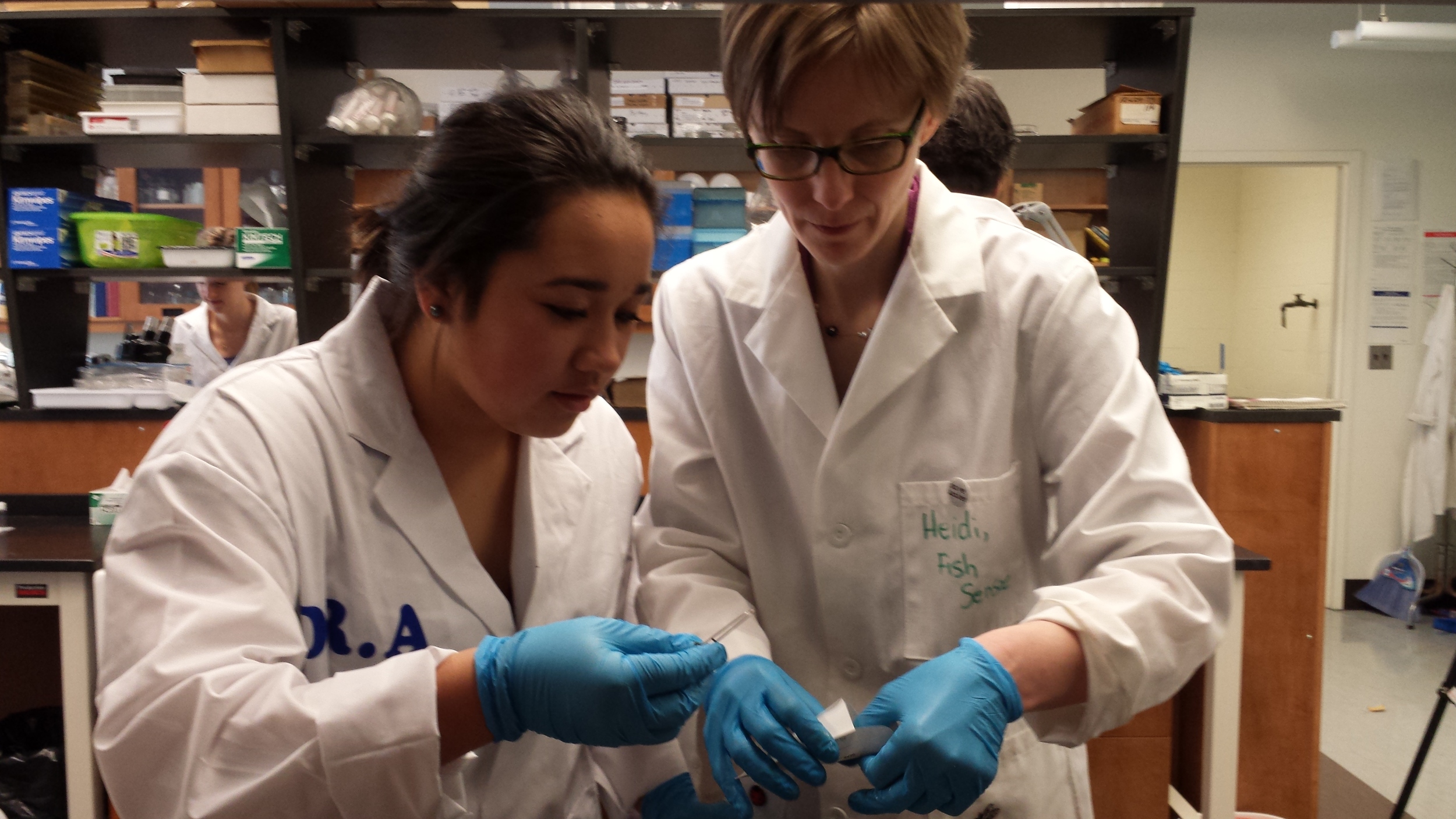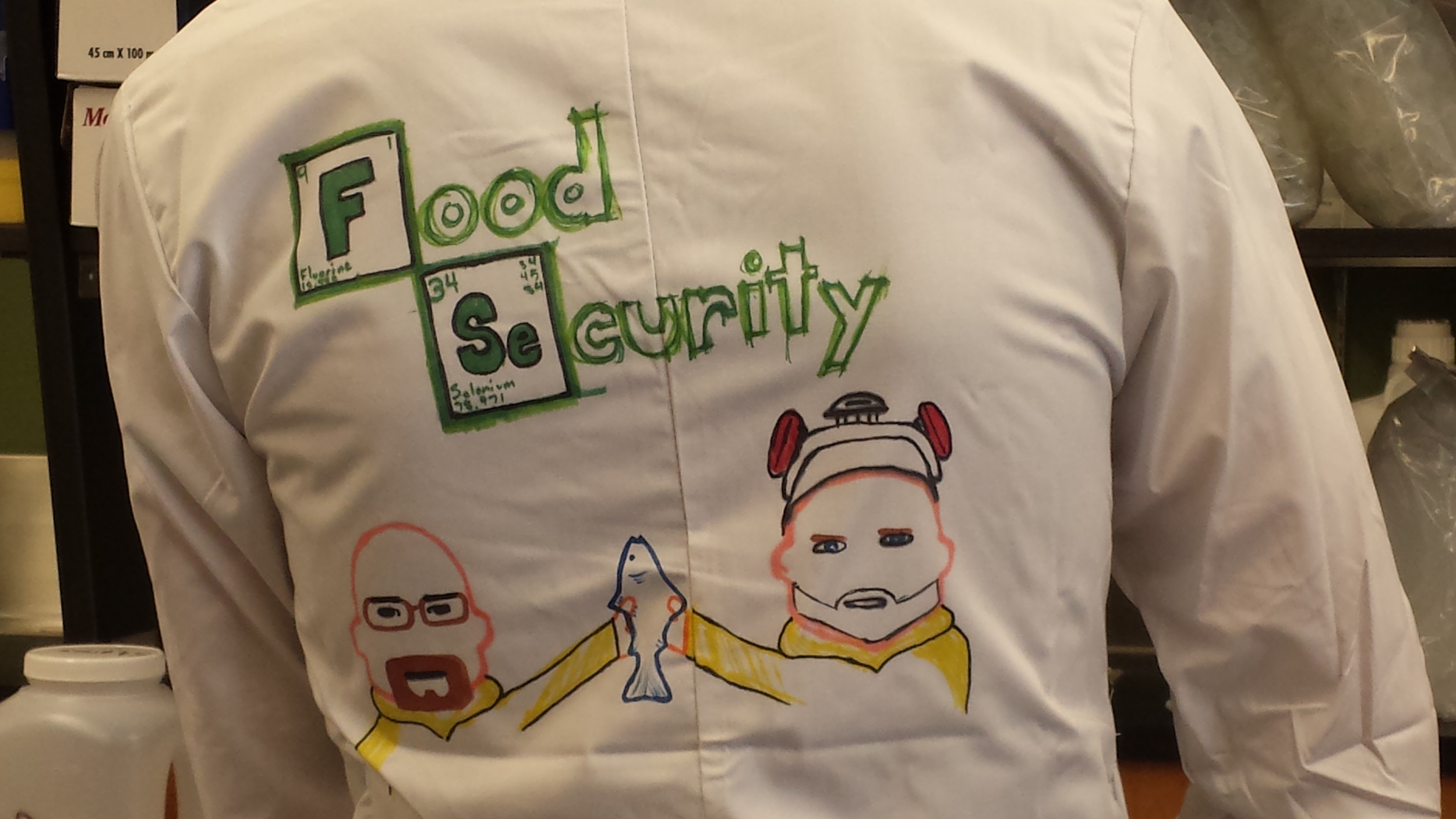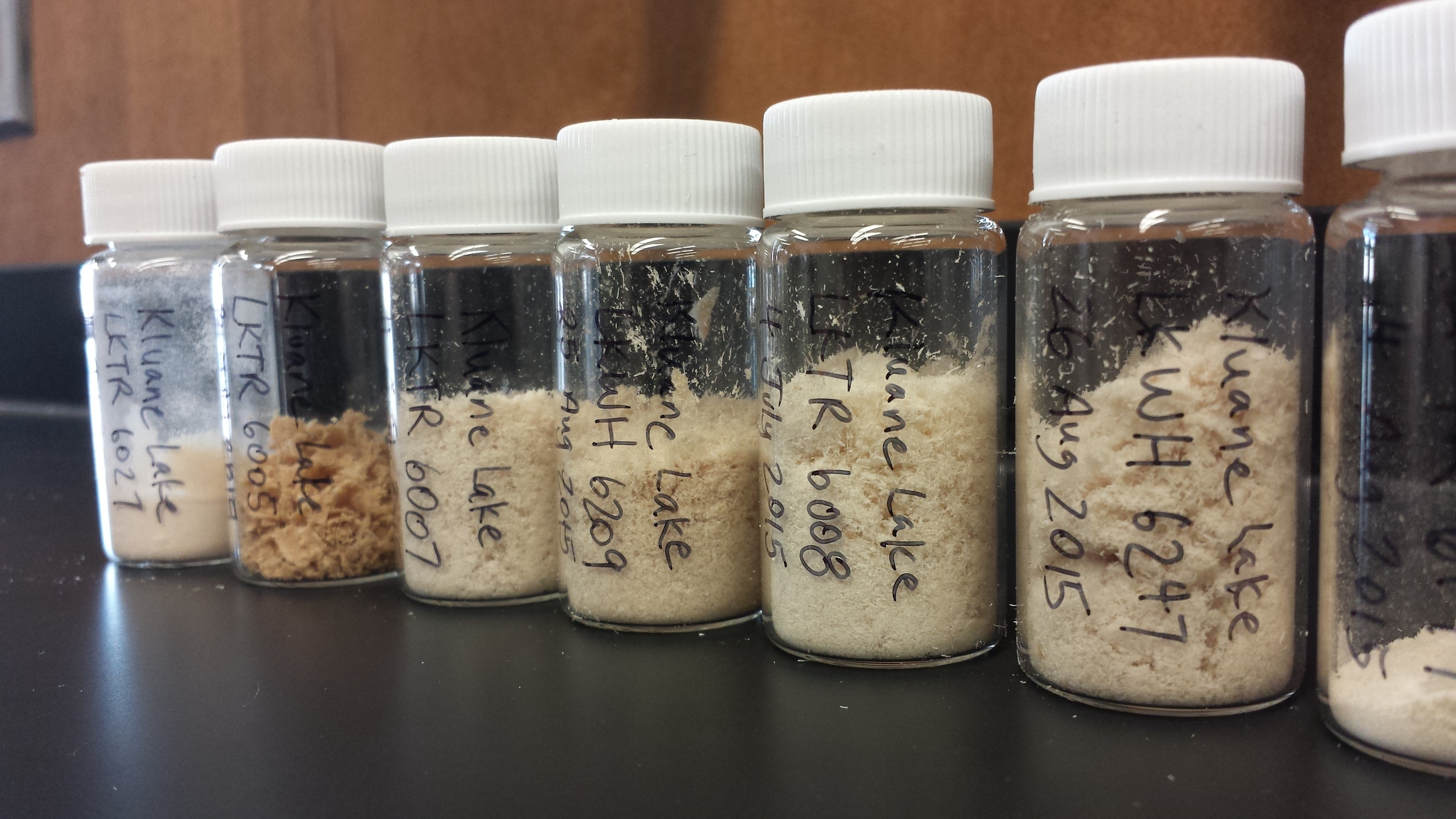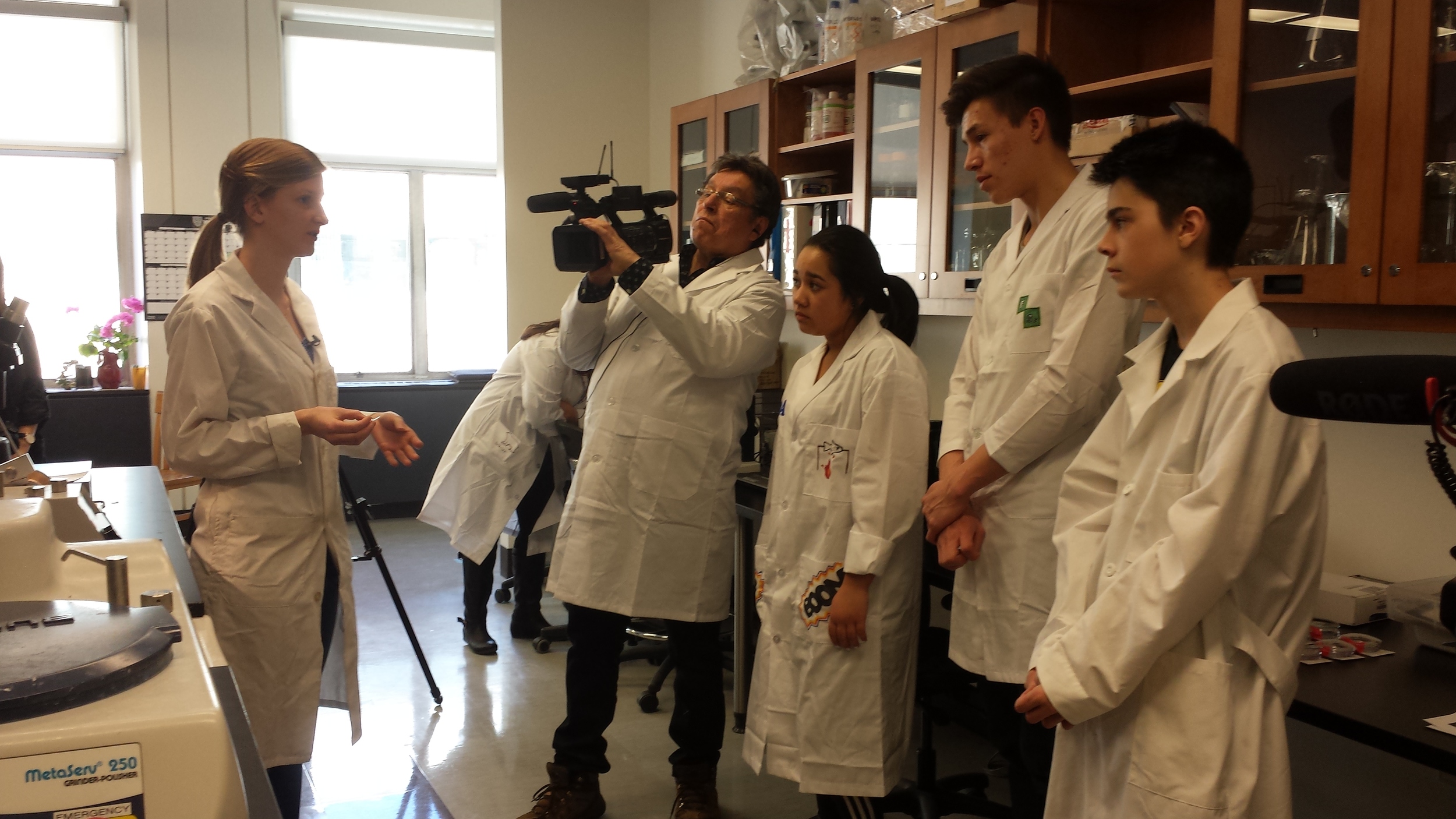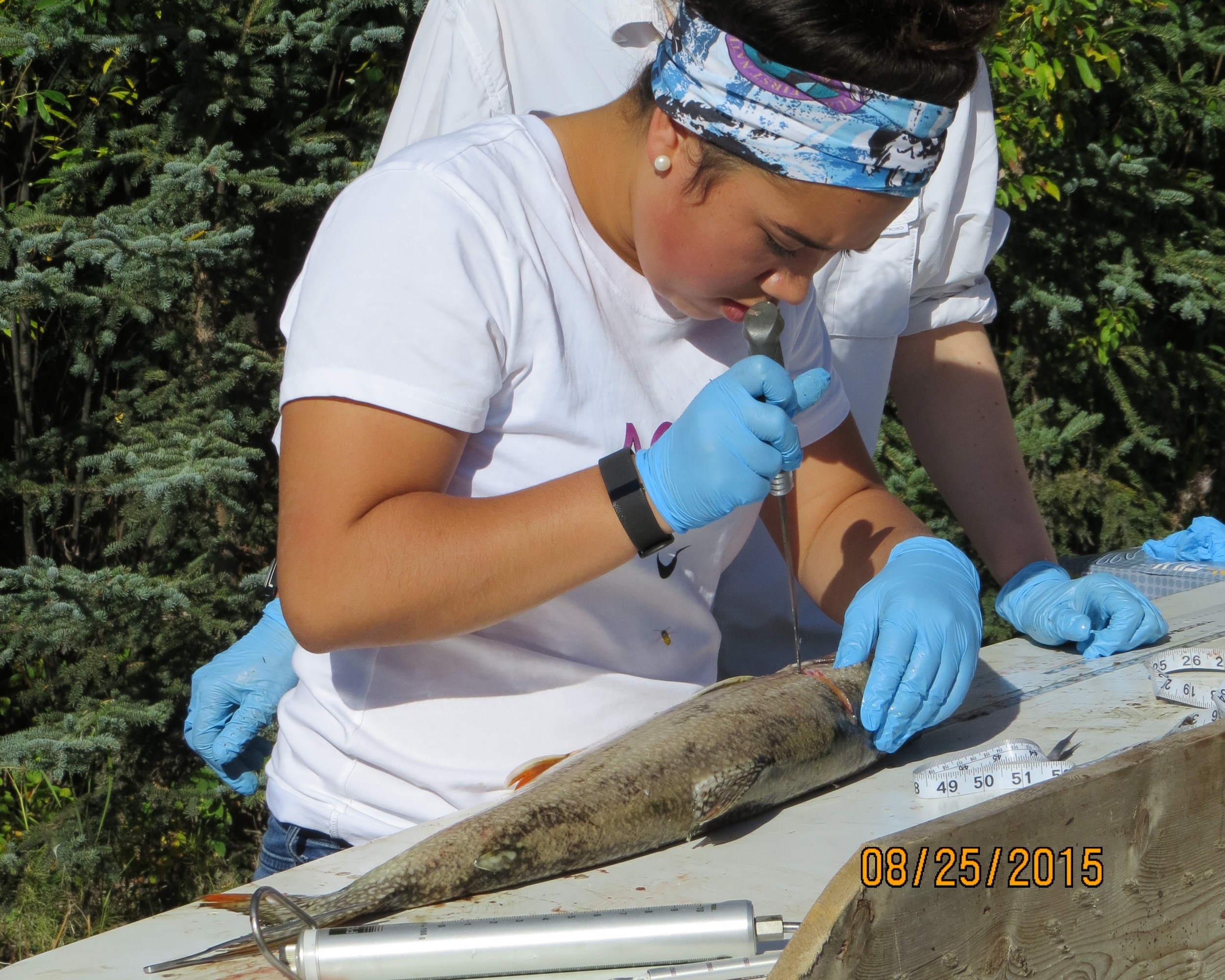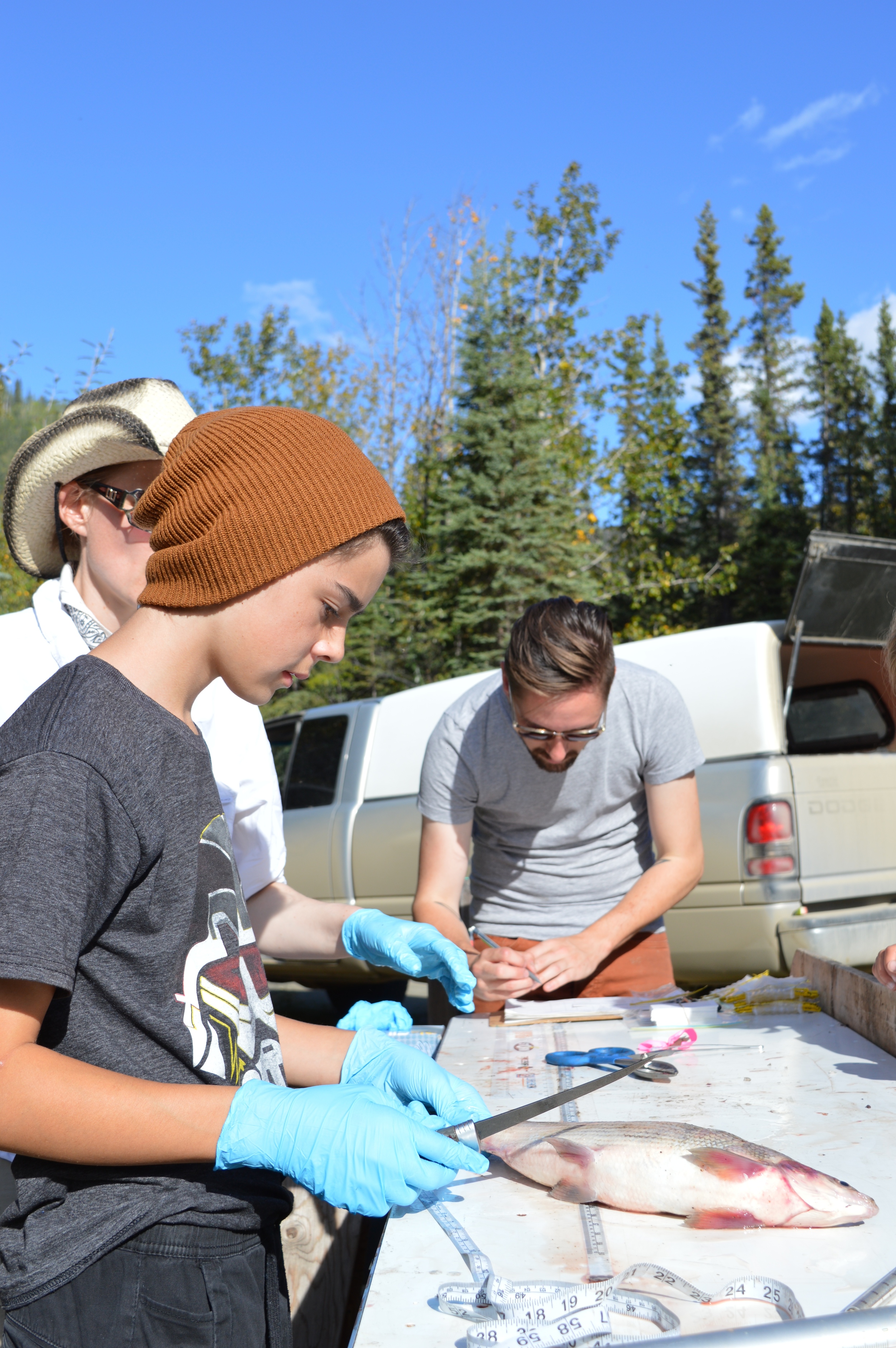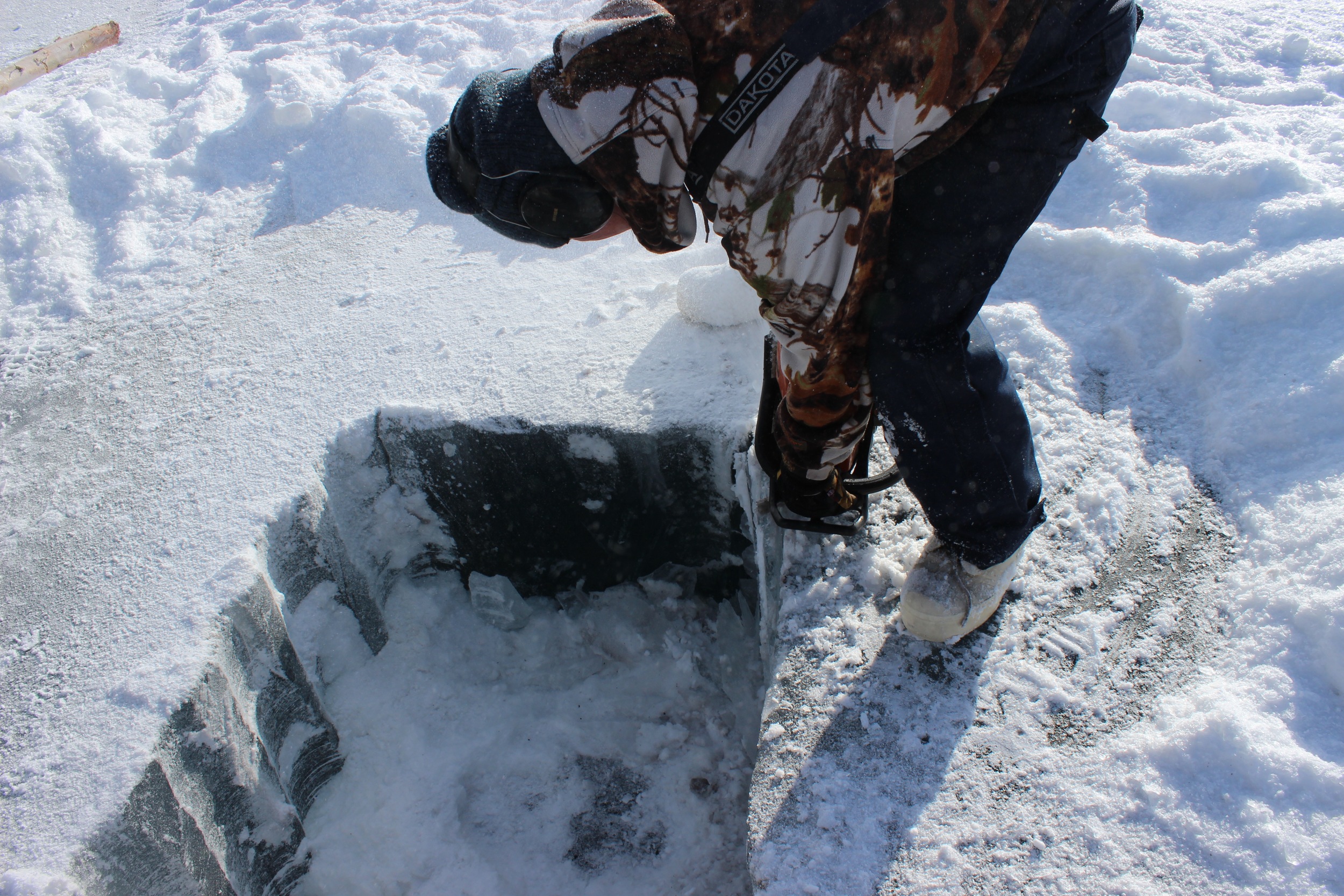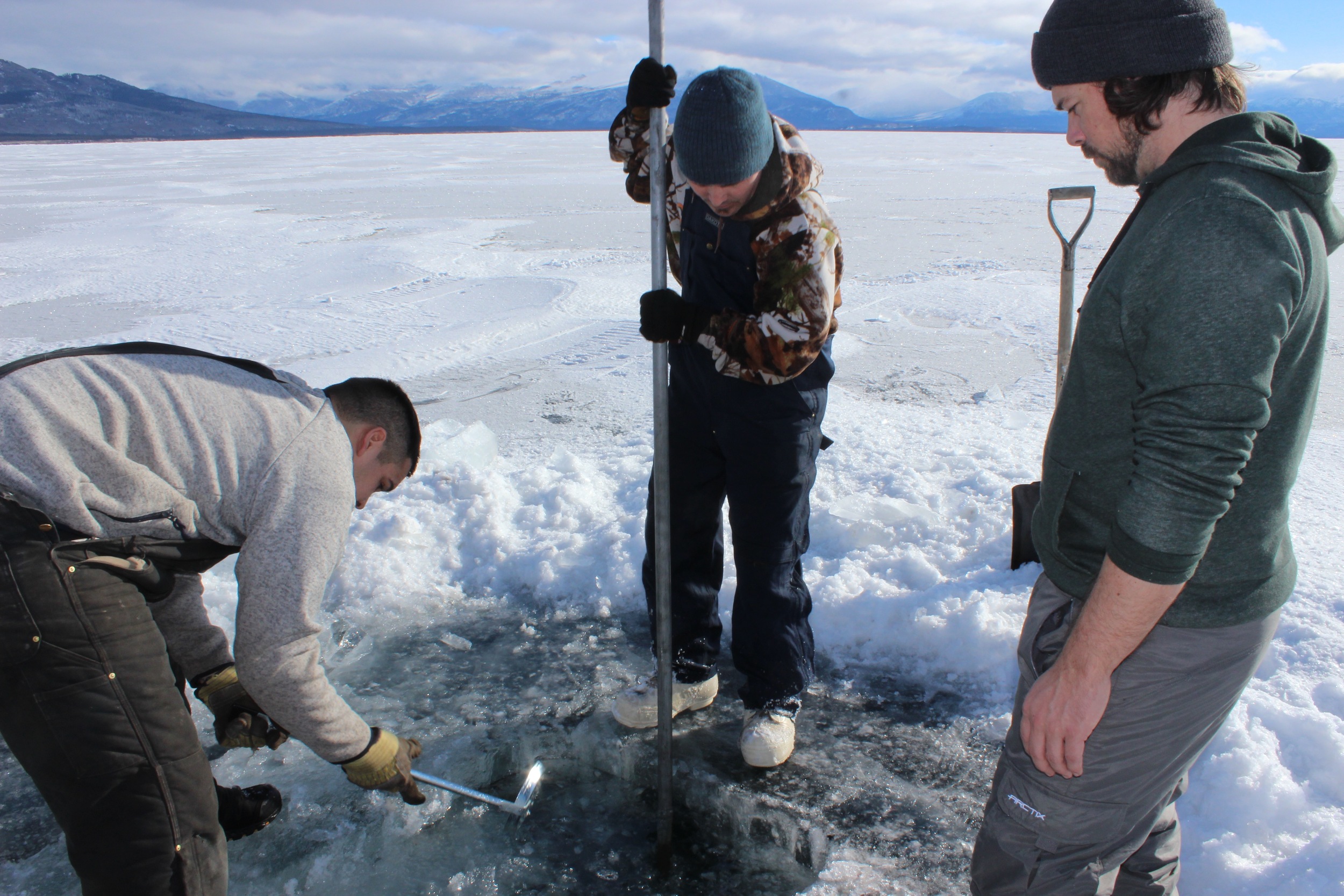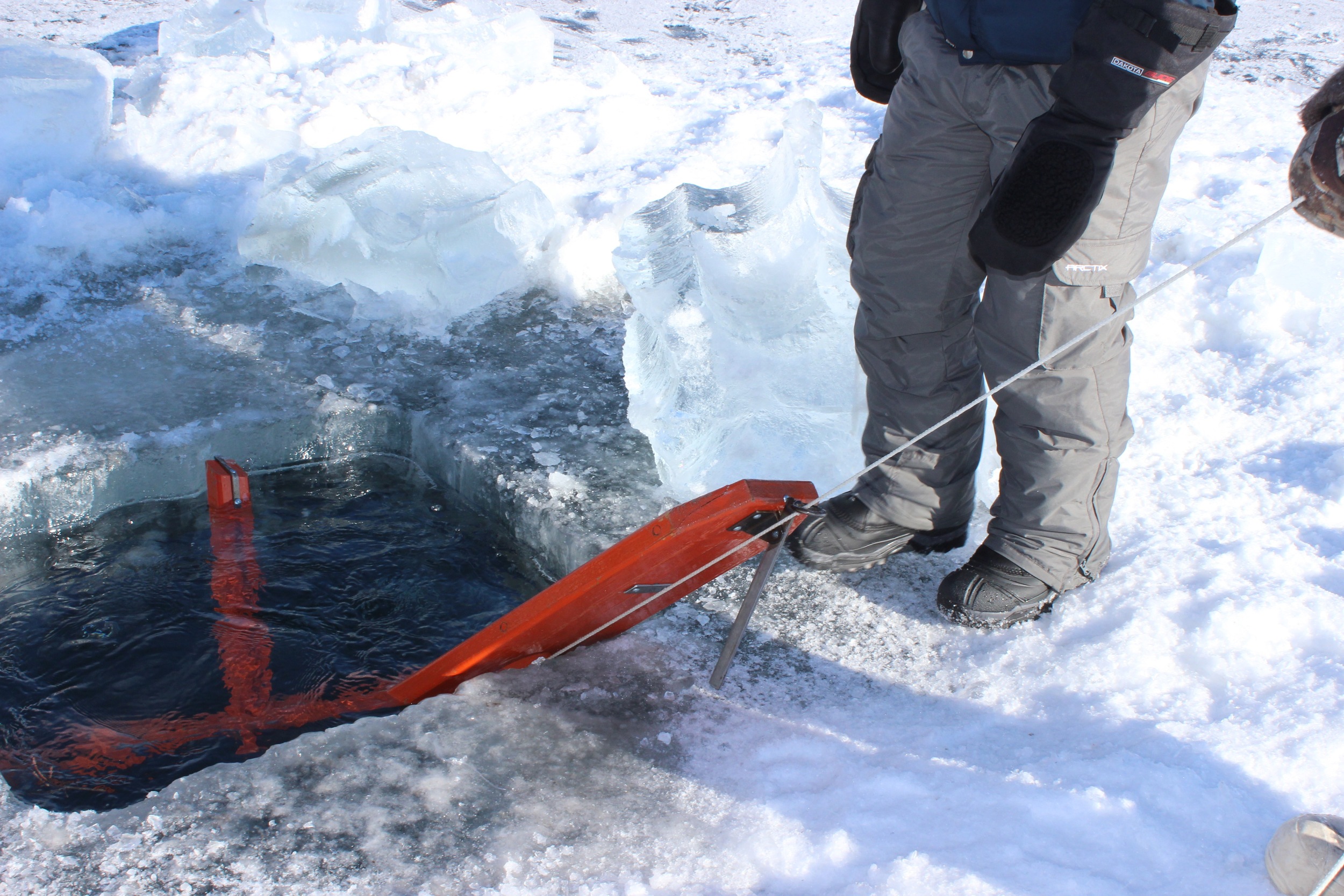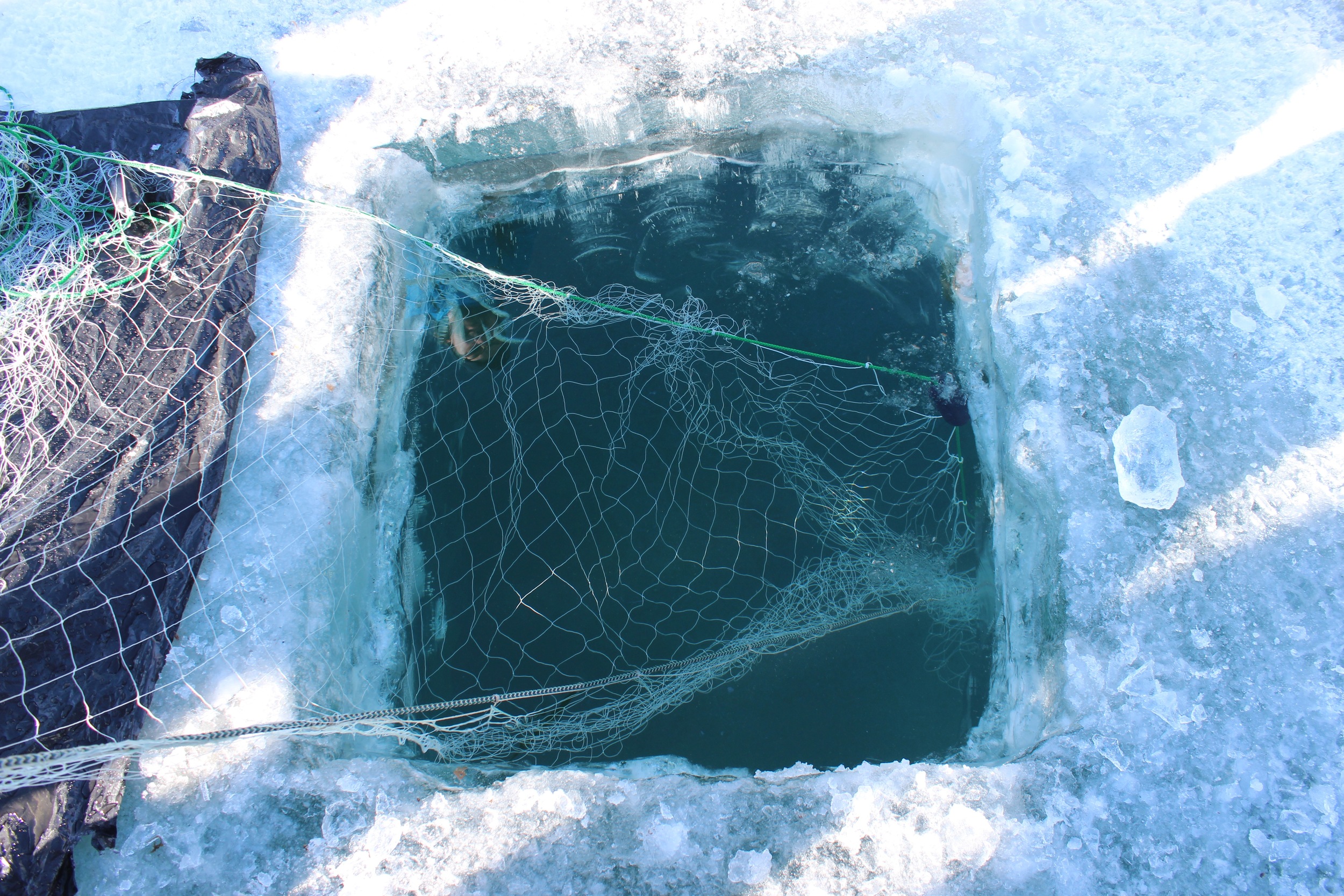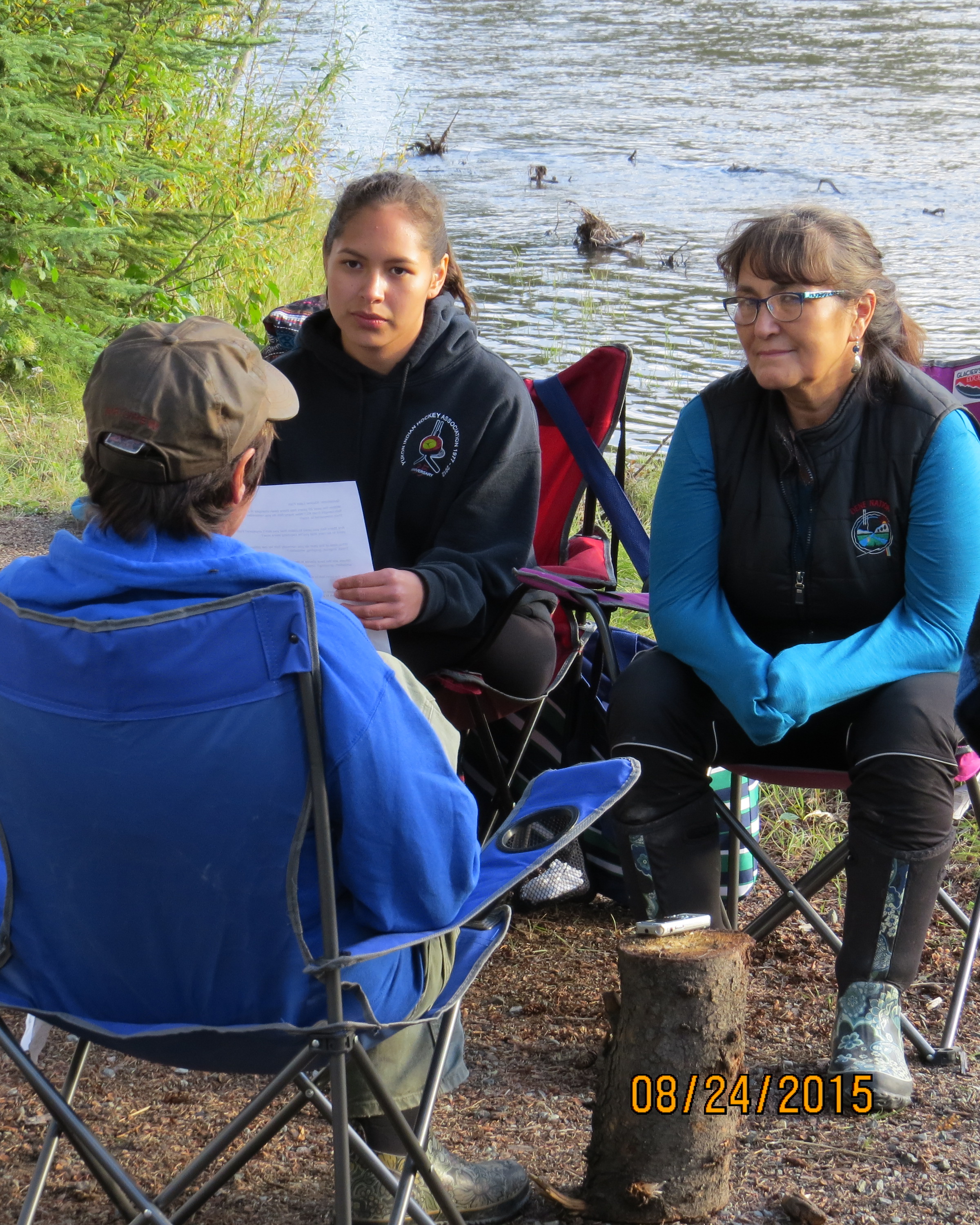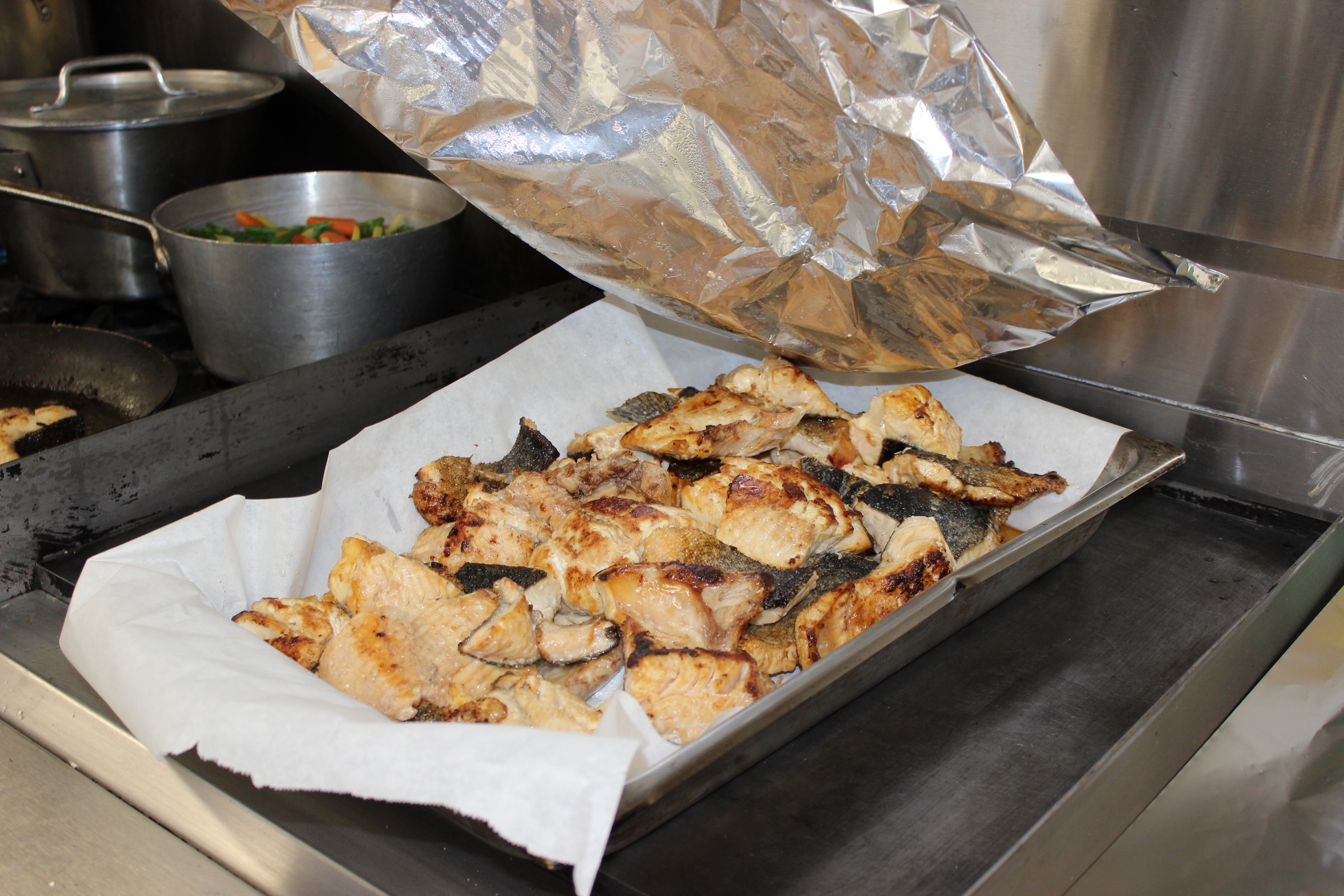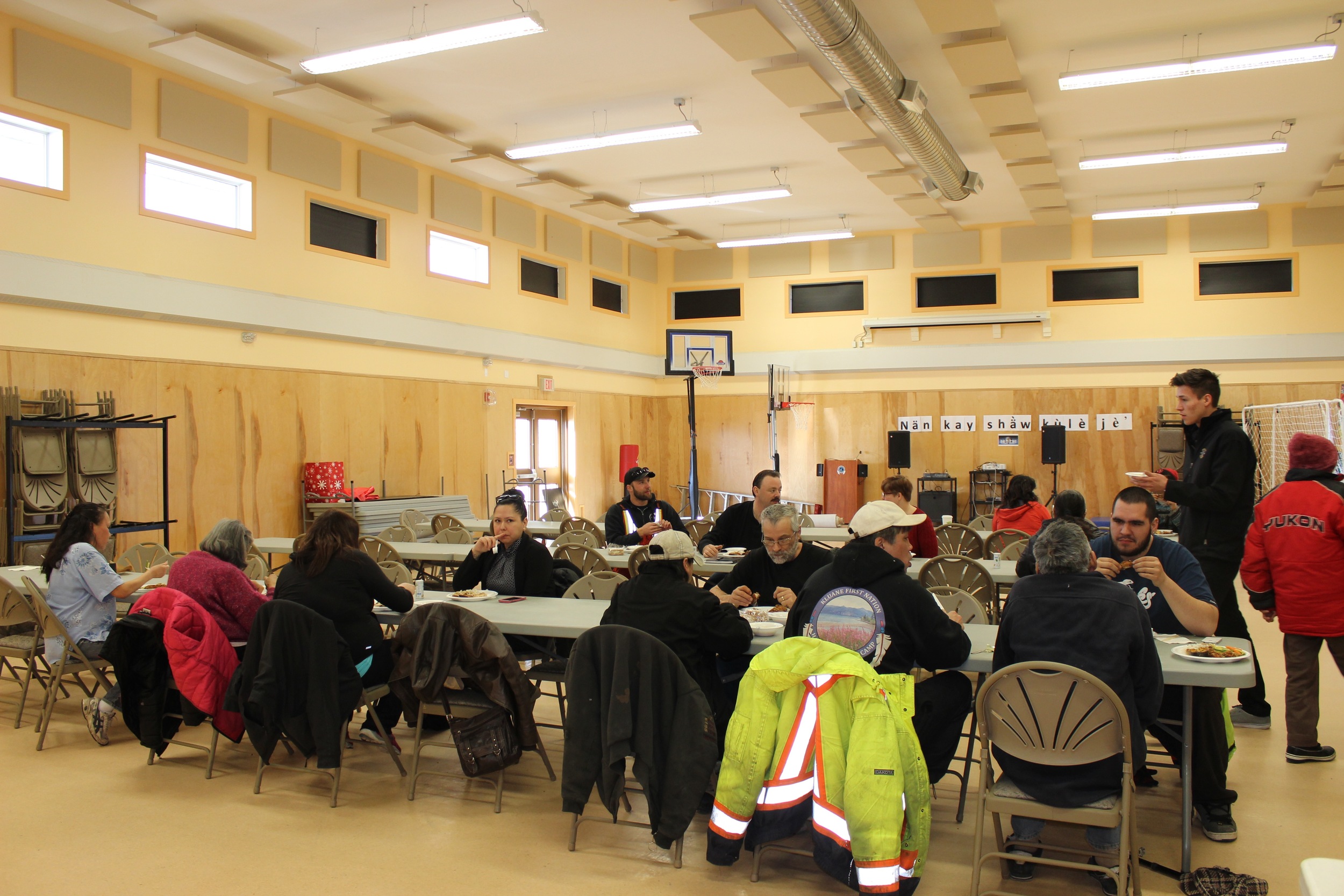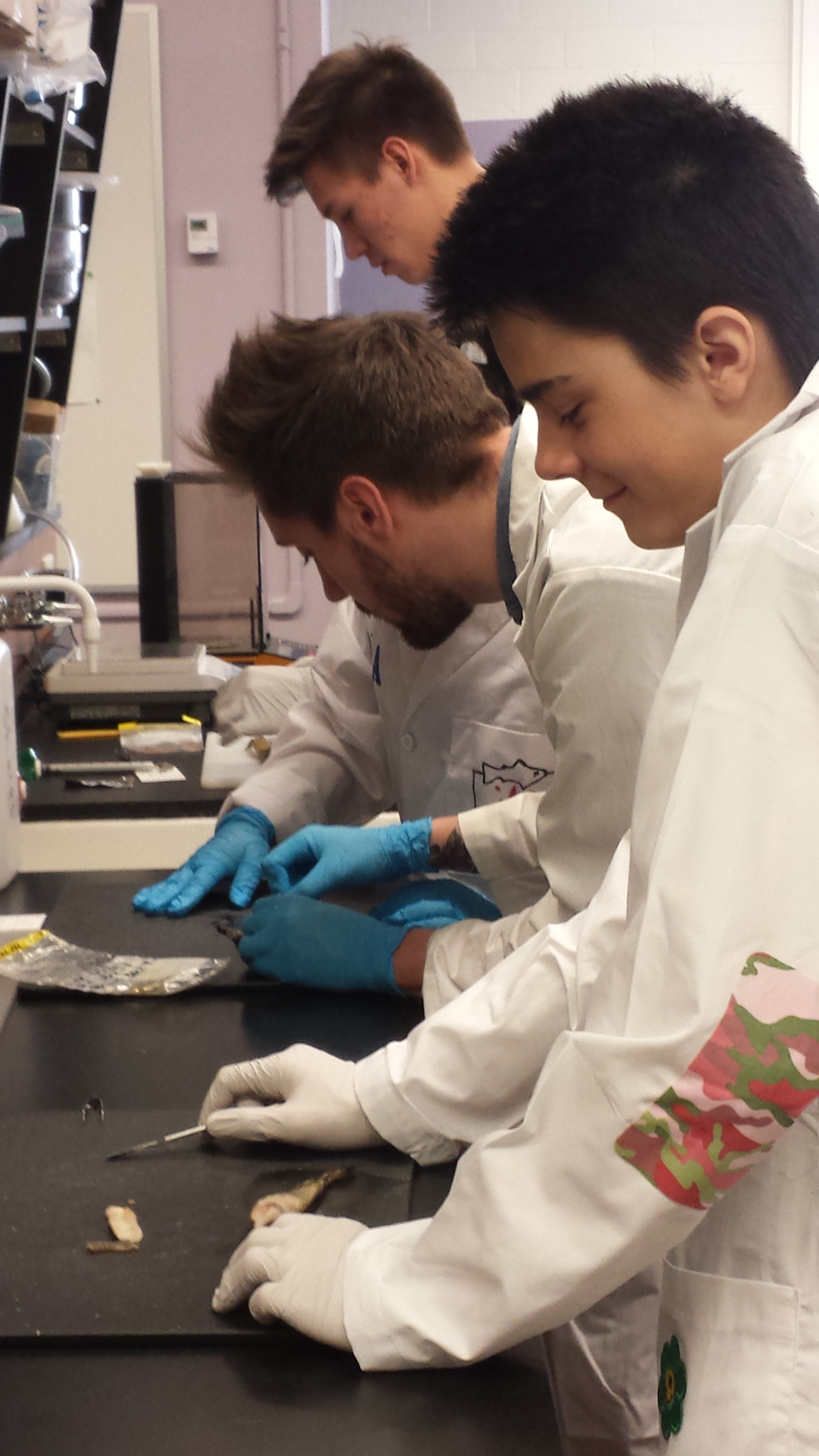Nourishing Our Future Project (2013-2016)
(2 Phases)
Phase 1: Nourishing Our Future: An Adaptive Food Security Strategy to Ensure the Cultural and Physical Well-Being of the Kluane First Nation Against the Impacts of Climate Change in the Yukon (2013-2015)
WHAT was THE PROJECT ABOUT?
Many Kluane First Nation (KFN) citizens and other Kluane Lake residents have noticed changes on the land and traditional animal species: melting of glaciers, thawing of ice on the lake in the winter, drying up of rivers and creeks, and fewer moose, caribou and some fish populations. Access to and availability of traditional foods that KFN people rely on for nutrition, health and wellness is declining; foods in grocery stores around Whitehorse and Tok are becoming more expensive, due to rising gas and market food prices. As a result, Kluane First Nation has prioritized the development of a community food security strategy that will maintain their current traditional food sources, enhance their ability to grow their own food, and contribute to making their community more food secure for the future.
who was involved and what were the project objectives?
This project was an initiative of the Kluane First Nation in partnership with the Arctic Institute of Community-Based Research. The project employed both Community-Based Research and Indigenous approaches to develop a food security strategy that was community-driven, action-oriented and based on community-identified questions and priorities. To guide the project team in their research, a local Advisory Committee called Team Food Security was formed. Committee members included Elders, KFN staff, and community members from Burwash Landing and Destruction Bay. Members were invited to participate based on their local expertise in the areas of KFN lands, gardening, harvesting, infrastructure and public works, knowledge of regional food security, and agriculture.
Project Objectives:
Gather information about local experiences with climate change and lifestyle changes related to food and nutrition
Find ways KFN citizens and other residents can adapt to ensure there will be local nutritious food available for the community now and into the future
Identify ancient methods of conservation for moose and other important food species
Discuss options for a community food security strategy
WHO FUNDED THE PROJECT?
This project was made possible by the generous funding from Health Canada’s Climate Change and Health Adaptation Program for Northern First Nations and Inuit Communities.
Main Deliverables
A literature review on the traditional lifestyle of Kluane First Nation as it relates to traditional foods and sustainable living
A greenhouse feasibility study (done by the Kluane Community Development Corporation)
A large poster of the project presented at the Spring Gathering and CYFN General Assembly
Youth training package, including PowerPoint presentations and hand-outs discussing research and active listening skills
PowerPoint presentations introducing the project and consent forms, and providing updates on the research
School Mosaic Mural
Final report - Nourishing Our Future: An Adaptive Food Security Strategy to Ensure the Cultural and Physical Well-Being of the Kluane First Nation Against the Impacts of Climate Change in the Yukon (2014)
--------
2015 Community Food Sharing Project
What was the project about?
The community sharing project was initiated in response to an action item identified in the food security strategy (2014) to increase traditional sharing practices with a focus on community-wide sharing of traditional foods, including sharing in the harvesting, preparing, and distributing of food. The community sharing project aimed to identify and raise awareness of the ways in which food sharing is already taking place in the community. It also sought to gather input from community members about how sharing practices could be strengthened. The output goals were to produce a written report summarizing the project team’s findings; and a short video highlighting the great work already taking place and what more community members would like to see done.
Who was involved?
This sub-project of the Nourishing Our Future project Phase 1 was a collaboration between Kluane First Nation, the Arctic Institute of Community-Based Research and the University of Ottawa. The team consisted of Principle Investigator, Norma Kassi, Director of Indigenous Collaboration, AICBR; Research Assistant, Ainslie Cruickshank, Master's Candidate, University of Ottawa's Graduate School of Public and International Affairs; Youth Research Assistant and Videographers, Jared Dulac and Nadaya Johnson, KFN.
Who funded the project?
Thank you to the University of Ottawa's Centre for Global and Community Engagement (Student's for Canada's North program) for funding this project piece.
Phase 2: Nourishing Our Future: Building on Kluane First Nations Community Food Security Strategy & Youth Engagement in Traditions related to Fisheries and Fish Health in Kluane Lake (2015-2016)
WHAT IS THE PROJECT ABOUT?
For many years, Kluane First Nation has not been able to harvest any salmon from their waters. Kluane Lake is the largest lake contained entirely in the Yukon and fish from its waters make up an important part of the health, culture and lifestyle of KFN people. Recently, concerns about contamination of Kluane Lake fish were raised in the community and many changes have been noticed in the health and quality of the fish for many years. The overall goal of this project was to understand levels of contaminants in fish from Kluane Lake and reassure and promote the importance of consuming traditional foods. Part of this research project included conducting interviews with KFN citizens as well as with others in the community about local observations of changes in quality, quantity and fish health and any concerns about contaminants in traditional foods. The project assessed the nutrient values (omega-3 fatty acids, selenium and zinc) as well as contaminant levels (mercury, organochlorine pesticides, trace metals) in Lake Trout and Lake Whitefish in Kluane Lake. The study helps to answer questions raised within the KFN community and provides a better understanding of local perceptions about nutrients and contaminants levels in the lake and in traditional food sources and hopes to bring a renewed understanding and reinforcement, especially for the young people, about the importance of protection and long-term stewardship of the local fishery.
WHO WAS INVOLVED AND WHAT WERE THE PROJECT OBJECTIVES?
This project is a partnership among Kluane First Nation, Dän Keyi Renewable Resources Council, Arctic Institute of Community-Based Research, and University of Waterloo. It combines the principles of community-based and scientific research with Indigenous traditional knowledge. The Chief, Executive Council and the Elder’s Council were kept informed throughout the project, were able to offer their guidance and verify the results.
Objectives:
Engage youth in local fishing practices and discussion to ensure long-term capacity for stewardship of local fishery resources
To assess levels of contaminant concentrations and nutrients in commonly consumed fish in Kluane Lake
To understand local observations of changes in quality, quantity and fish health
To ensure traditional knowledge of fishing locations, seasons, methods, and preparation be passed from Elders to youth
To enable understanding of Elders, youth, and community members regarding where contaminants in fish come from, how they can build up in fish, and what the benefits and potential risks of eating fish are
To discuss potential climate change impacts affecting access to local traditional foods
To build capacity of local Yukon students and community members in western science research practices, such as analysis of fish age and growth, including first-hand lab analysis experience
To promote consumption of locally harvested traditional foods, including fish
WHO FUNDED THE PROJECT?
This project was funded by the Government of Canada, Department of Indigenous and Northern Affairs Canada's Northern Contaminants Program (NCP), the Yukon Fish & Wildlife Enhancement Trust (YFWET) and the Dän Keyi Renewable Resources Council (DKRRC).
main deliverables & Publications
All the contents of the Nourishing Our Future project are owned by Kluane First Nation; AICBR has been given the rights to disseminate and share the deliverables, as per the agreed terms of the copyright agreement.
Fish sampling
Photography & Photovoice
Youth training on a variety of subjects including: climate change, understanding long-range contaminants, conducting community-based research, following traditional First Nations protocols, basic communication skills, and respectful personal conduct
Interviews conducted by youth researchers and AICBR about local and traditional knowledge about the health of Kluane Lake and its fish, changes in Kluane Lake and its fish, perceptions of contaminants in traditional foods, and the importance of traditional foods for subsistence
Harvest Camp
Reports and videos:
Poster presentation, titled: "Contaminants, nutrients and the traditional value of food fishes in Kluane Lake, Yukon Territory"
Final Report - Nourishing Our Future: Building on Kluane First Nations Community Food Security Strategy & Youth Engagement in Traditions related to Fisheries and Fish Health in Kluane Lake (2015-2016)
Documentary - Remembering Our Past, Nourishing Our Future (below)
Publications:
Stories of Yukon Food Security. Food (In)security in Northern Canada. Northern Public Affairs Magazine. Volume 5 Issue1 (April 2017)
Authors: Jody Butler Walker, Norma Kassi, Marilyn Van Bibber, Katelyn Friendship, Molly Pratt, Math’ieya Alatini, Mary Jane Johnson, Eugene Alfred, Roger Alfred, Kluane First Nation Lands, Resources and Heritage Department, and Kluane First Nation Youth and Elders
The Partnerships, the Productions and the People behind the Lens: Promoting Youth Wellness through Community-Based Research and Filmmaking. Innovations in Community Health and Wellness. Northern Public Affairs Magazine. Volume 5 Issue 2 (July 2017)
Authors: Norma Kassi, Molly Pratt, Marilyn Van Bibber, Katelyn Friendship, Jody Butler Walker, Math’ieya Alatini Mary Jane Johnson, Roger Alfred, Eugene Alfred, Kluane First Nation Lands, Resources & Heritage Department, Kluane First Nation Youth and Elders, & the Vuntut Gwitchin Natural Resources Department
Ä si Keyi, means "Our Grandfather's land." This dramatic sub-arctic land is changing. The film tells a story about how climate change and the history of food insecurity have affected Kluane First Nations people and the land they call home. It portrays strategic adaptation by embracing their past as the foundation towards prioritizing their culture and traditional values, practices and knowledge. Ultimately, it is a story of resilience of a peoples in the wake of a changing world.
Photo Gallery
Photos from both phases were taken by youth, project coordinators, researchers and others, namely Alanna Dickson, Jared Dulac, Norma Kassi, Mallory Coletta, Pauly Wroot, Heidi Swanson, Nelson Zabel, Brenda Carson, Ashley Alberto, Tookie Mercredi, Jared Dulac, Nadaya Johnson, Lenita Alatini, Skyler Van Lieshout, and Monica Johnson.
